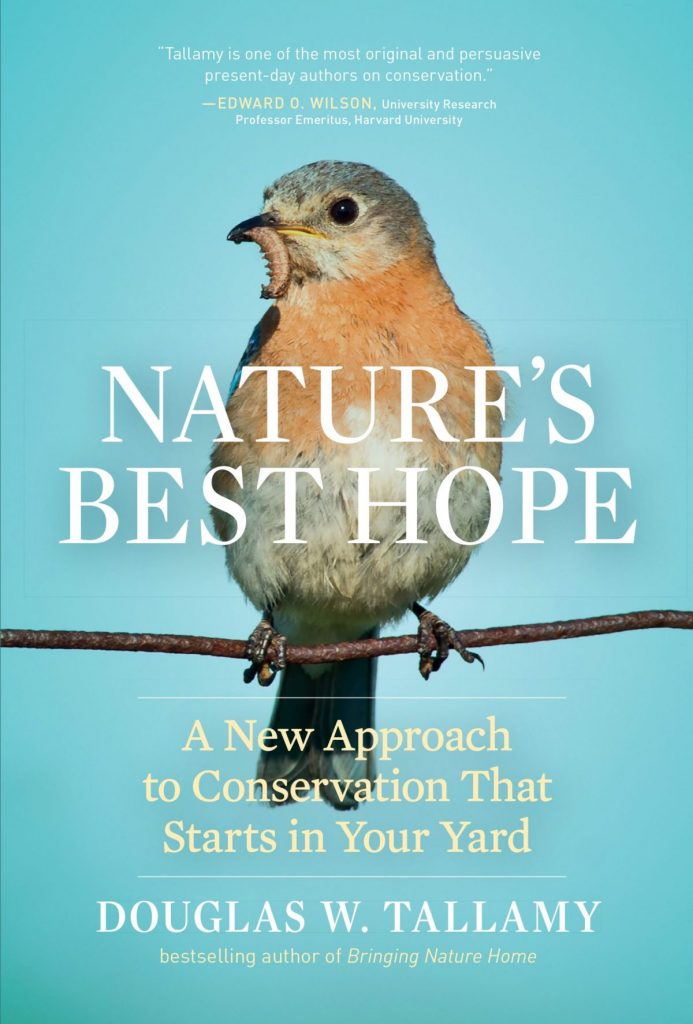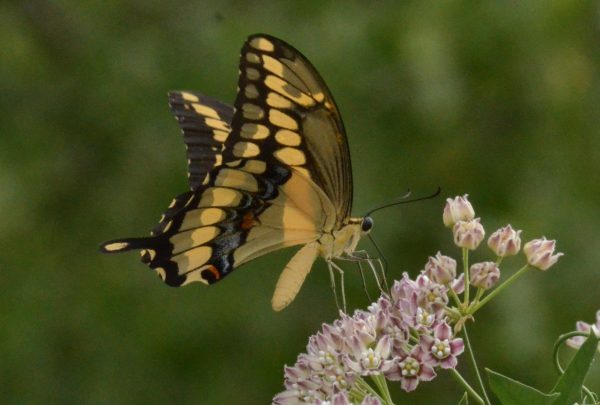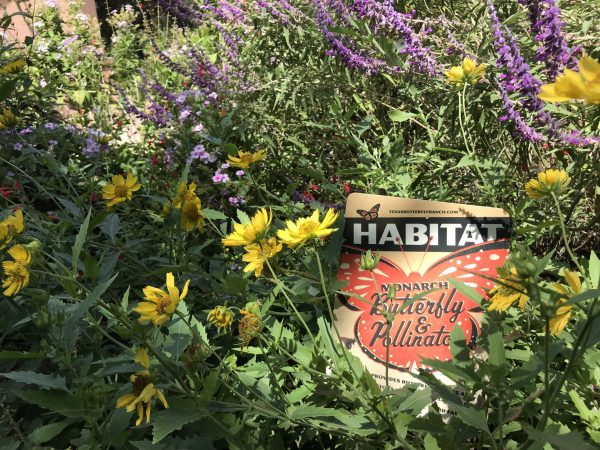 Enough excuses. I’ve been procrastinating installing a pollinator garden at my rental home because, well–it’s a temporary roost. Why invest all that time, energy and money in a garden you’ll only be able to enjoy for a short time?
Enough excuses. I’ve been procrastinating installing a pollinator garden at my rental home because, well–it’s a temporary roost. Why invest all that time, energy and money in a garden you’ll only be able to enjoy for a short time?
Because, as Doug Tallamy lays out in his recent best seller, Nature’s Best Hope, my garden isn’t just about me. A pollinator garden represents the opportunity to restore the damaged relationship we have with nature by turning our private properties into thriving ecosystems for the benefit of all the plants and animals with whom we share this planet.
Tallamy, a professor of entomology at the University of Delaware and an early advocate of native plant landscaping, will be the featured speaker at a FREE webinar on October 8 as part of the fifth annual Monarch Butterfly and Pollinator Festival.

Tallamy’s book argues we should plant half our yards with native plants. He’ll make his case at a FREE webinar this Thursday, October 8.
His book is filled with beautiful images and optimistic content on how each of us has the ability, through native plant landscaping, to make a positive impact on our local ecosystems as well as the global climate change battle.
Tallamy begins with a history lesson on the evolution of conservation, pointing out that for centuries, it’s been in humanity’s interest to compete with nature, dominate it–until now.
If we continue treating our relationship with nature like a competition, wildfires, hurricanes, and cancer from pesticides will become even more common, he argues. And the loss of thousands of innocent, bystander species of plants and animals will continue their path toward extinction. Insect apocalypse, anyone?
Like all creatures, we must adapt to a changing environment and make our relationship more cooperative than competitive, Tallamy writes. He challenges the wisdom of lawns, the benefits of chemical pesticides, and the use of invasive plants that contribute little to the ecosystem beyond our limited idea of “beauty.”
Historically, we’ve left conservation to the government via national parks and policies like the Endangered Species Act. But these approaches have been inadequate in maintaining a healthy ecosystem, Tallamy argues, especially in light of the escalating damage to our green spaces.
Instead, Tallamy proposes we crowdsource conservation by creating the world’s largest national park, appropriately named Homegrown National Park.
How?
Each of us should take conservation into our own hands by questioning the culture of the lush green lawn and committing to plant half our yards and landscapes with native, keystone plants. Homegrown National Park will provide the critical connections and migratory corridors for plants and animals to intermingle, strengthen, and grow their populations. Plant choices for the Homegrown National Park should be thoughtfully selected and regionally appropriate. He recommends tapping resources like the National Wildlife Federation’s Native plant finder,which suggests plants appropriate to specific regions and circumstances.

Giant swallowtail nectaring on Zizotes milkweed in San Antonio, Texas. Want them in your yard? Plant citrus, their host plant. Photo by Veronica Prida
Citing current research, Tallamy notes that introduced plants have a direct impact on the quantity of life and overall quality of an ecosystem. But a Homegrown National Park stocked with geographically suited native plants will provide food, fodder and shelter for the local creatures that provide the ecosystem resources we need to keep the planet healthy.
No more excuses; I’m in. By planting natives, the life on my little plot of earth will increase and contribute to the Homegrown National Park. Together, we can do our part to create corridors of hope for the future, by mending our relationship with nature.
San Antonio friends can pick up an autographed copy of Tallamy’s book at the Twig Bookshop. A portion of proceeds will go to the San Antonio River Foundation.
Also, join us for Tallamy’s FREE webinar this Thursday, October 8.
Ashley Bird works as general manager of the Monarch Butterfly and Pollinator Festival. She’s a certified Montessori School teacher, project manager and nature lover.
Related Articles
- Paddling Lessons: documentary reveals the secret life of a river
- A monarch at my Abuela’s Day of the Dead altar
- Register for FREE workshops, webinars and more for our October Monarch Butterfly and Pollinator Festival
- Can’t get outside? Track the 2020 monarch butterfly migration from your desk
- Monarch butterflies heading our way
- Lost a loved one to COVID-19, social injustice or other causes? We’ll tag a butterfly in their name
- Monarch Butterfly and Pollinator Festival to remember those lost in 2020
- Three monarch butterflies tagged at 2018 Festival recovered in Mexico
- Thousands gather at Pearl to close out fourth annual Monarch Butterfly and Pollinator Festival
- Waggle Dance Anyone? Learn how at Monarch Butterfly and Pollinator Festival
- Five years later, monarch butterfly champion status delivers


I have planted milkweed for years. I got my first Monarch this August. It was a lady. I watched her babies grow and take flight. I have pictures. Hope to have more next year.